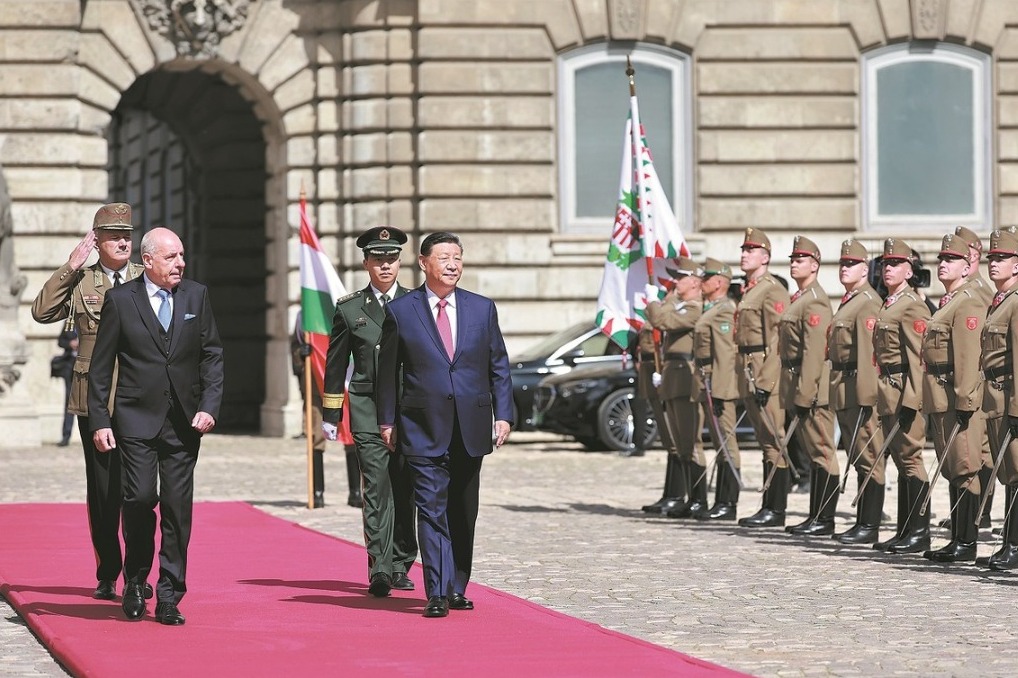Spending, reliefs to bolster fight fiscally
By Li Xiang | China Daily | Updated: 2020-02-08 11:53

Finance Ministry: New tax measures to offset impact of epidemic on economy
China will step up fiscal spending and roll out more tax relief policies to support the country's fight against the novel coronavirus epidemic, the Ministry of Finance said on Friday.
The nation has implemented measures including reducing companies' loan interest burden, tariff exemption for imported medical goods, tax and fee reduction or exemption for companies and individuals in affected sectors, including logistics, transportation, catering, tourism, delivery and airlines.
The measures are aimed at addressing the shortage of medical supplies in some regions, alleviate financial burden on sectors at the frontline of battling the epidemic, ensure cash flow of businesses that are hit by the epidemic, and offer financial support to doctors, patients and individuals whose lives are affected by the outbreak, Vice-Finance Minister Yu Weiping said during a news conference in Beijing.
A total of 66.74 billion yuan ($9.56 billion) has been allocated for epidemic prevention and control by the central and local government departments as of Thursday and 28.48 billion yuan has been already spent, according to the ministry.
The central government has allocated 17.09 billion yuan including a special fund of 5.7 billion yuan for epidemic control and prevention which covers the subsidy of 1.8 billion yuan for Hubei province, the epicenter of the novel coronavirus epidemic, and funds of 9.95 billion yuan for basic public health services.
Yu said that the government will offer more cuts in loan interest amount owed by companies to ensure the real corporate financing cost is below 1.6 percent. Companies in sectors including transportation, catering, accommodation and tourism will be allowed to carry over their losses logged this year to an extended period of eight years for deduction from their pretax profits.
Taxpayers that provide logistics, public transportation and delivery services as well as services related to daily life necessities will be exempted from the value-added tax. The ministry also waived airlines' payment to the national civil aviation development fund to help them cope with possible losses due to the epidemic.
Meanwhile, the government will cover 60 percent of the treatment costs for diagnosed patients and provide subsidies for suspected patients. For people diagnosed with the novel coronavirus, their personal business guarantee loan can be extended for one year and they will continue to enjoy the fiscal discount policy.
Asked about how the fight against the epidemic will affect China's fiscal deficit this year, Yu said that the government has taken uncertain factors into consideration for its budget deficit this year and it can guarantee the expenditure on the epidemic prevention and control.
"The novel coronavirus outbreak will have a certain impact on the economy. But it will not change the long-term trend of stable economic growth with improved quality," he said, adding that the government is confident of meeting its fiscal targets this year despite the ongoing epidemic.
Economists expect China to post a higher fiscal deficit this year as the country will have to expand government spending to shore up growth and offset the impact of the epidemic on the economy.
Many believe that the government should tolerate a higher fiscal deficit of more than 3 percent this year to firmly reaffirm its expansionary policy stance and help stabilize market confidence. Last year, the central government set its fiscal deficit target at 2.8 percent.
"We believe that China needs to accelerate monetary and fiscal policy easing in the coming two months," Steven Zhang, chief economist at Morgan Stanley Huaxin Securities Co, said in a research note.
Zhang said that the government should consider further raising the fiscal deficit ratio to more than 3 percent this year given the rising tax reduction and growing expenditure to offset the impact of the epidemic.
The government could also consider accelerating the issuance of local government special bonds to help investment rebound after the epidemic is brought under control, he said.
Wang Tao, chief China economist at Swiss bank UBS, expects China to further ease fiscal policy to provide tax relief for affected businesses, especially smaller companies, and offer targeted support for affected households along with an additional boost for infrastructure investment.
But she sees limited space for an expansionary fiscal policy given the country's high debt level, massive infrastructure build-up and property bubble concerns.
























